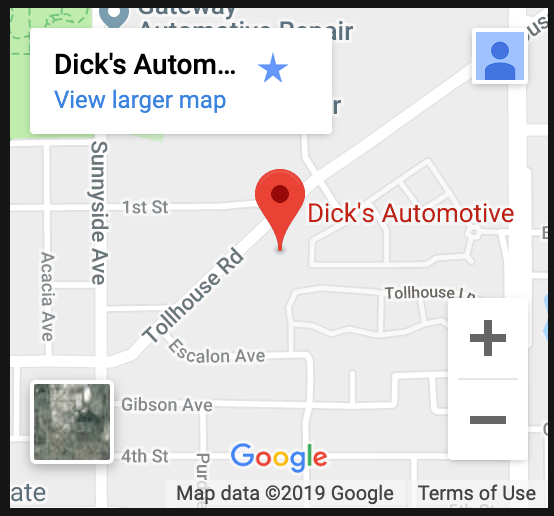Have you ever felt your brakes not responding as well as they should, especially when going downhill or after prolonged use? This could be due to brake fade, a condition that can be dangerous if left unchecked. Brake fade occurs when your vehicle’s braking system loses effectiveness due to overheating, often caused by prolonged braking or driving in stop-and-go traffic. Understanding brake fade is crucial for every driver because it directly impacts your safety on the road.
Brake fade happens when your brake pads or fluid become overheated, reducing their ability to create friction and stop your vehicle effectively. This loss of braking power can be alarming, especially in situations where you need to stop quickly. Common scenarios include driving downhill, towing heavy loads, or navigating high-traffic areas that require frequent braking. Without proper care and awareness, brake fade can increase your stopping distance, making accidents more likely.
In this blog, we’ll explore how brake fade occurs, the warning signs to watch for, and most importantly, how to prevent it. If you’re experiencing any issues with your brakes, it’s essential to address them immediately to ensure your safety on the road. At Dick’s Automotive, our ASE-Certified technicians are here to help. Schedule your brake inspection today: https://dicksautomotiveinc.com/appointments/.
How Does Brake Fade Happen?
Brake fade typically occurs when your brakes are exposed to excessive heat. When you apply the brakes, friction between the brake pads and rotors generates heat. Normally, the braking system can handle this heat, but under certain conditions, it can become overwhelming. Driving downhill for extended periods, towing heavy loads, or repeatedly braking in heavy traffic can push your brakes beyond their capacity.
As the brake components heat up, the materials used in the brake pads and rotors begin to lose their ability to create enough friction to stop your vehicle. In some cases, the brake fluid can also boil, creating air bubbles in the system, which reduces hydraulic pressure and weakens braking performance. If left unchecked, this can lead to dangerous situations where your brakes feel soft or unresponsive, especially when you need them most.
At Dick’s Automotive, we recommend regular brake inspections, especially if you frequently encounter conditions that could lead to brake fade. Staying on top of brake maintenance can prevent dangerous wear and tear, ensuring your vehicle stops safely when it counts.
Signs You’re Experiencing Brake Fade
Knowing the warning signs of brake fade can help you avoid dangerous situations on the road. If you’ve ever noticed a change in how your brakes feel, it’s important to understand whether it might be brake fade. Here are some key symptoms to watch out for:
- Soft or Spongy Brake Pedal: If your brake pedal feels less responsive or “mushy,” it could be due to overheated brake fluid or pads.
- Longer Stopping Distance: If it takes longer than usual for your car to stop, brake fade may be reducing the efficiency of your braking system.
- Burning Smell: A strong, burning odor can indicate that your brakes are overheating, a common cause of brake fade.
- Squealing or Grinding Noises: These sounds may suggest that your brake pads are worn down, making them more susceptible to overheating.
If you notice any of these signs, it’s crucial to have your brakes inspected immediately. At Dick’s Automotive in Clovis, our team is equipped to diagnose and repair brake issues before they escalate into dangerous problems.
How to Prevent Brake Fade
Preventing brake fade comes down to keeping your braking system cool and well-maintained. Here are some tips to help you avoid brake fade:
- Avoid Riding the Brakes: When driving downhill, try to use engine braking by shifting to a lower gear, rather than constantly applying the brakes.
- Give Your Brakes Time to Cool: After heavy braking, allow your brakes to cool down by pulling over or driving at a lower speed without braking.
- Upgrade Your Brake Components: High-performance brake pads and fluid are designed to withstand higher temperatures and are less likely to experience brake fade.
- Regular Brake Maintenance: Have your brakes inspected regularly by professionals to ensure all components are in good condition and working properly.
By following these steps, you can reduce the likelihood of brake fade and keep your vehicle running safely. If you’re unsure about the condition of your brakes, don’t wait—schedule an inspection with Dick’s Automotive today.
Conclusion: Stay Safe with Proper Brake Maintenance at Dick’s Automotive
Brake fade is a serious issue that can jeopardize your safety on the road, but with proper care and awareness, it’s preventable. Regular maintenance and smart driving habits are key to avoiding this dangerous condition. If you’re experiencing any signs of brake fade or want to ensure your vehicle is in top shape, schedule an appointment with the experts at Dick’s Automotive in Clovis, CA. Your safety is our priority—let us help keep your vehicle performing at its best: https://dicksautomotiveinc.com/appointments/.


